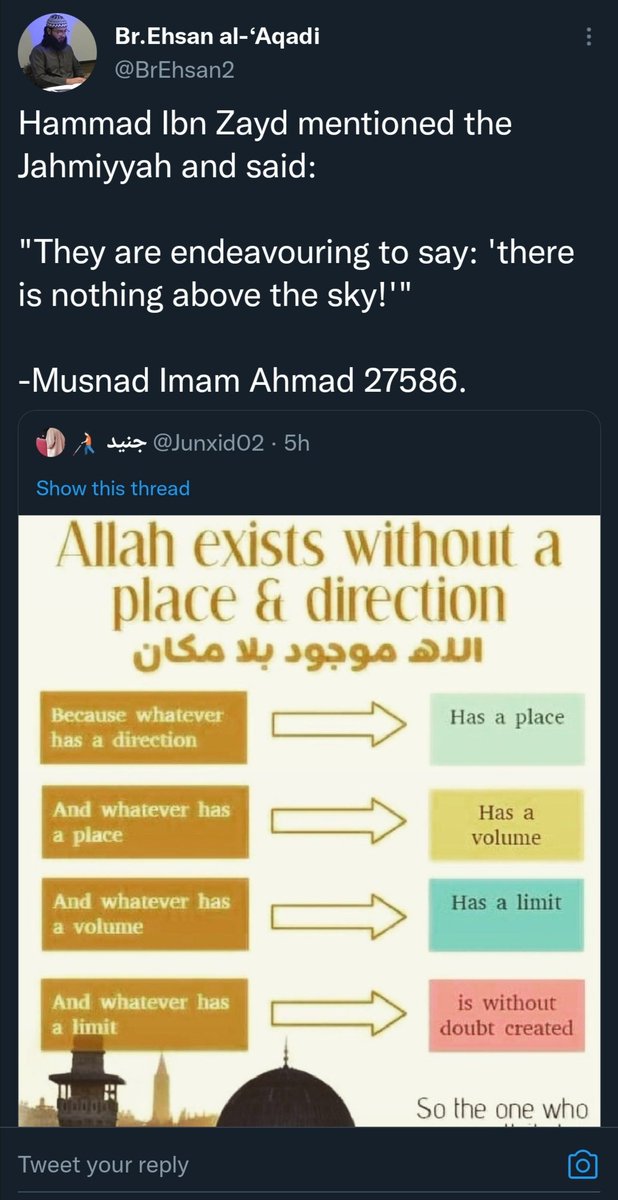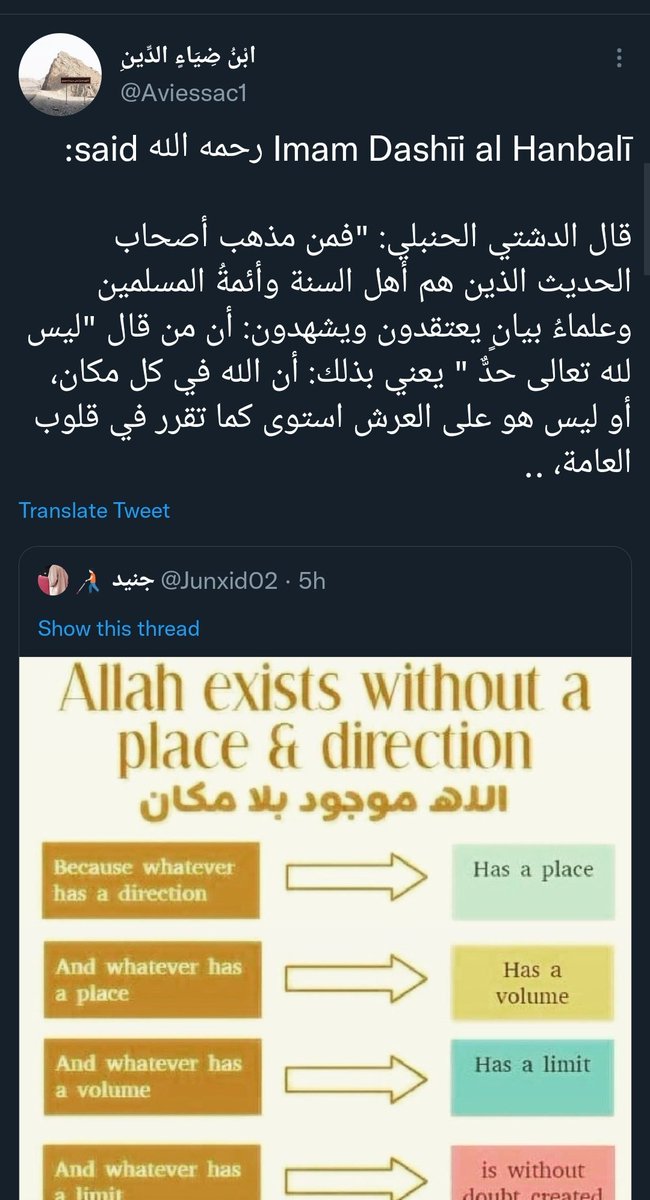
We don't reject Rasm, no one said we reject Rasm. However, our issue is that one then starts viewing this as non Tafwidh. This is acceptable in our Manhaj and there is no issue in this.
However, then we do not say we are not doing Tafwidh. The least that can be said is خلاف لفظي
However, then we do not say we are not doing Tafwidh. The least that can be said is خلاف لفظي
As I've mentioned before, our scholars give Tafwidh as the definition of Tafwidh Kulli Al Haqiqi, and this is something we cannot know, thereby we go by only that which is carry out by this attribute as you can see in all of my threads where I quote Maturidi scholars.
I've explained this issue a billion times and I am not bothered on going ahead in a back and forth with Ibrahim, even the post he just made quoting my page is gone off the point. This is not something we reject, rather it is about those who say we know but then don't know.
Yes our scholars may say 'and the meaning of this is.....' but here they are just referring to that which is known to us and not the actual Al-Ma'na al-Kulli Al,-Haqiqi.
When one claims we attribute a literal .... Then he must also give it to its literal meaning.
When one claims we attribute a literal .... Then he must also give it to its literal meaning.
If you are going to go by Rasm, then we have already removed the hugest conflict although their may still be some differences but those are small. Yet this does not give us the literal meaning of attribute ....
رسم في تعريفنا:
السمع: هي صفة أزلية تتعلق بالمسموعات
والبصر: هي صفة أزلية تتعلق بالمبصرات
اليد: هي صفة أزلية خلق الله تعالى به
وكذا وكذا
السمع: هي صفة أزلية تتعلق بالمسموعات
والبصر: هي صفة أزلية تتعلق بالمبصرات
اليد: هي صفة أزلية خلق الله تعالى به
وكذا وكذا
• • •
Missing some Tweet in this thread? You can try to
force a refresh








